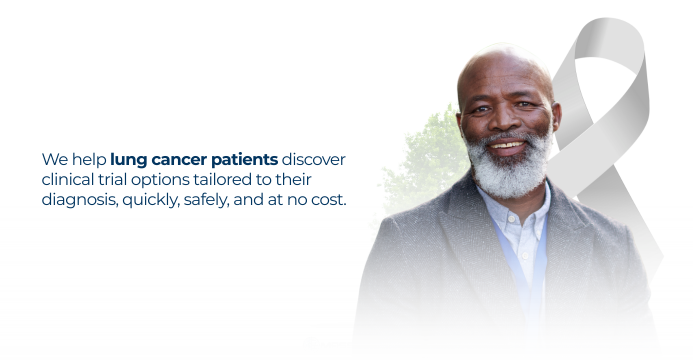A lung cancer clinical trial is a research study that evaluates new ways to prevent, detect, or treat lung cancer—including NSCLC and SCLC—under strict ethical and safety oversight. Trials test the safety and effectiveness of therapies or care strategies, and participation is voluntary with informed consent.

Types
- Non-Small Cell Lung Cancer (NSCLC) trials (adenocarcinoma, squamous, large-cell, etc.).
- Small-Cell Lung Cancer (SCLC) trials (limited-stage and extensive-stage cohorts).
- By stage: Early-stage (resectable), locally advanced, and metastatic disease trials.
- Biomarker-driven trials: EGFR, ALK, ROS1, BRAF, KRAS G12C, MET exon 14, RET, NTRK, HER2, and PD-L1.
- Targeted-therapy trials (TKIs, antibody-drug conjugates, novel inhibitors).
- Immunotherapy trials (PD-1/PD-L1, CTLA-4, bispecifics, cellular therapies).
- Chemo-immunotherapy combination trials and sequencing strategies.
- Radiation/chemoradiation & SBRT optimization trials.
- Perioperative trials: Neoadjuvant and adjuvant approaches for surgical candidates.
- Screening/diagnostics (CT screening, liquid biopsy, minimal residual disease monitoring).
Symptoms
Common signs and symptoms of lung cancer include:
- Persistent cough or change in a chronic cough; coughing up blood.
- Shortness of breath, wheezing, or chest pain.
- Hoarseness, recurrent infections (bronchitis/pneumonia).
- Unintentional weight loss, fatigue, loss of appetite.
- With spread: bone pain, headaches, neurologic symptoms.
Causes
- Tobacco smoke (active and secondhand exposure).
- Radon gas exposure (indoor/environmental).
- Occupational exposures: asbestos, silica, diesel exhaust, certain chemicals.
- Air pollution and prior chest radiation.
- Genetic predisposition or family history (smaller proportion).
Treatments
- Surgery (early-stage, operable disease).
- Radiation therapy (including SBRT) and chemoradiation.
- Systemic therapy: platinum chemotherapy; targeted therapy for actionable mutations
(EGFR, ALK, ROS1, BRAF, KRAS G12C, MET, RET, NTRK, HER2). - Immunotherapy (PD-1/PD-L1 ± CTLA-4), often alone or with chemo.
- Emerging options in trials: antibody-drug conjugates, bispecifics, novel combinations, perioperative IO.
Support
- Trial navigation: Coordinators assist with eligibility, scheduling, and consent.
- Symptom management: Proactive control of side effects; palliative care for quality of life.
- Financial & logistics: Clarify what the study covers vs. insurance; ask about travel/lodging support.
- Lifestyle & rehab: Smoking cessation resources, nutrition guidance, pulmonary rehab, light exercise.
- Psychosocial support: Counseling, caregiver resources, and patient support groups.
Disclaimer: This content is for general education and not medical advice. Patients should discuss eligibility and treatment options with their oncology team.
To enroll in clinical trial, you must meet highly specific criteria that’s established by the researchers who are conducting the investigation. That includes detailed information about type of cancer, treatment history, response to treatment, and other data that is collected in medical records.
If you are being treated for cancer or any other disease, your doctor should have a complete record of your medical care, including specific information about what form of the disease you have and what treatments you have received. Your patient relations coordinator will contact you and inform you about the details.
Massive Bio provides its services to the patients and their doctors at no cost—you won’t have to pay anything to receive a clinical-research matching report. There are no hidden costs involved.
Massive Bio strictly adheres to all HIPAA guidelines and international regulations focused on maintaining your privacy. We take extra measures to secure your personal information, ensuring it is protected beyond the mandatory requirements.
Your doctor may know of a clinical research study being conducted in your area that’s recruiting participants and is right for you. However, Massive Bio uses its artificial intelligence powered platform to match patients to clinical research studies that give you the best chance of a positive outcome and are being conducted in a geographical location that makes sense for you.
Yes, Massive Bio keeps your doctor up to date on your status throughout your participation.



